Diego Maradona: Recalling his moments in Scotland - a player who can never be replaced
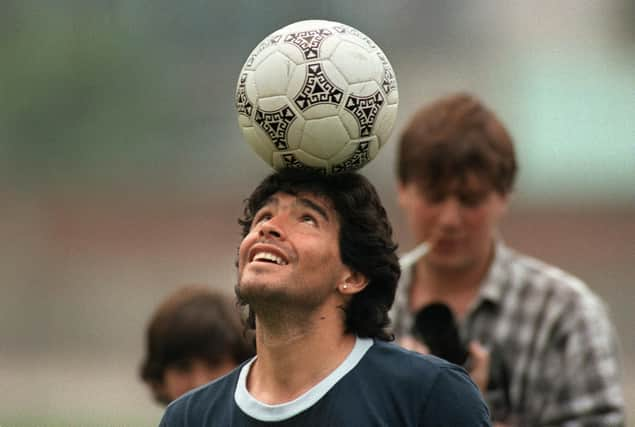

Published in 1980, it is an accurate reflection of how it felt at the time when someone many now regard as the greatest-ever footballer was beginning to announce himself on the global stage.
He was still to turn 20. He had not yet begun his club career in Europe. And yet the writers were still alert to a phenomenon, employing adjectives such as “sensational” to describe Diego Armando Maradona.
Advertisement
Hide AdAdvertisement
Hide AdThe book binding strained from the pressure of a world star of the game waiting to burst out. Promise poured from its pages. But then how could anyone really know what awaited?
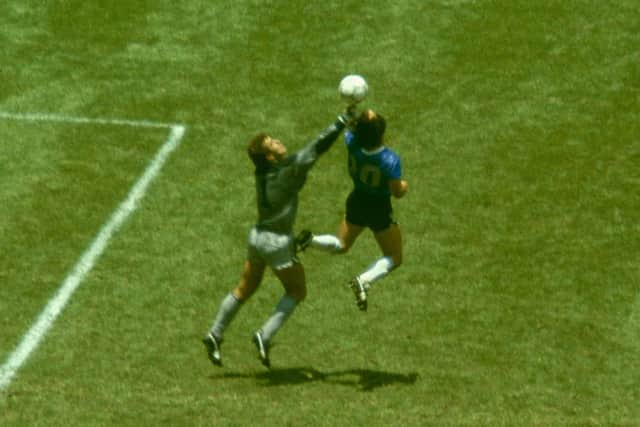

It seems particularly poignant to flick through these pages now as Maradona, all played out at the age of 60, is laid to rest next to his parents in a cemetery on the outskirts of Buenos Aires.
He’s there on the inside cover, hurdling a challenge from John Wark, and he is there in the inside pages, where Kenny Dalglish, panting in his wake, is described as being “reduced to futile pursuit” in a caption below an image from the same game: Scotland v Argentina, June 1979.
This was Maradona's British debut and saw him claim his first international goal while also laying on two others for Leopoldo Luque in Argentina’s 3-1 win. Scots were given a glimpse of the future. Maradona went on to own the decade. There had not been another footballer like him. There will not be another footballer like him.
The older members of the crowd that day might have scoffed. After all, Pele was their benchmark. Although Cruyff was then in his pomp, few others could compare. George Best, with a spell at Hibs imminent, was fighting to remain relevant.
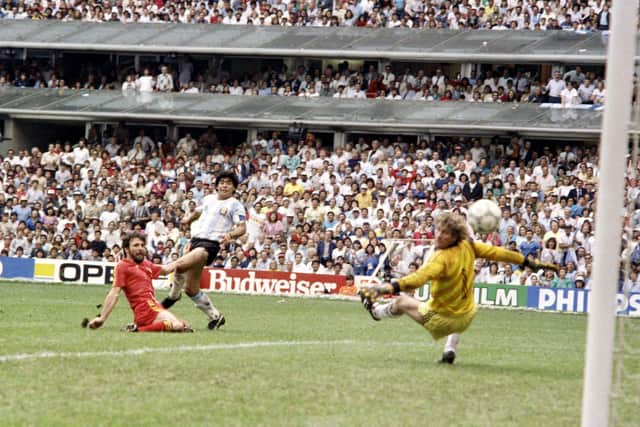

Although many of those pictured weeping and wailing in the streets, in Buenos Aires and beyond, are a good bit younger than that, which says it all, the fiercest disciples at the Church of Maradona are those now around the age of 50.
We have been assailed with talk of cheating, the hand of god, but really, is anyone surprised by his conduct that afternoon in Mexico City? A child of the streets, he did what he had to do to survive. If it meant subterfuge, then so be it. He made up for it a few minutes later with another, more supreme display of his craftiness.
Genuine Scotland affinity
Scots do love, in newspaper parlance, to “put a kilt on stories”, often to an embarrassing degree. While this tendency has been apparent in the coverage of Maradona, there is some credibility to this reporting, since he did seem to have a genuine affinity with the country. It also remains an inconvertible truth that he enjoyed some significant moments here.
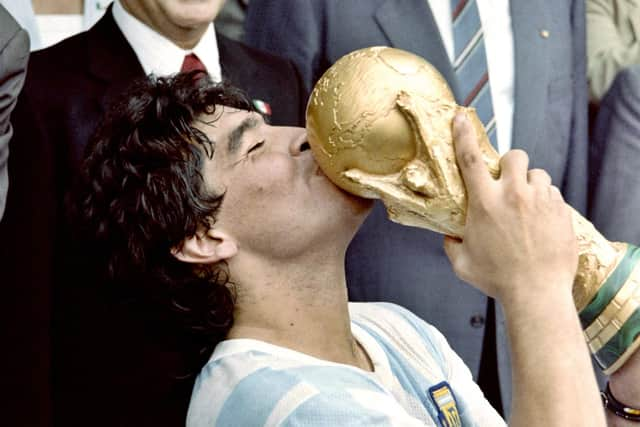

Advertisement
Hide AdAdvertisement
Hide AdHis first international goal came in that aforementioned game against Scotland at Hampden and his first international as manager came against Scotland at Hampden, when a ballboy, Adam Brown, now a footballer at Alloa Athletic, bent down to retrieve the St Christopher chain which Maradona had lost during the training session on the eve of the match. Those of us in the press box – it’s almost unheard of for reporters to waste valuable writing time observing training, again proof of Maradona’s draw – watched the commotion as he learned the good news, before hoisting the lucky boy up towards the heavens with both hands, as he had done with the World Cup trophy in 1986.
It felt symbolic that he had lost and then found this pendant, revered by athletes, mariners, ferrymen and travellers, on the turf where he had taken such a significant step on the journey, and where he was about to take another one. Argentina won 1-0, though his time as manager, while one is glad to know it happened, and it meant having the chance to lead his national team at another World Cup, was not a success.
Diego Jnr and Archibald
Some found it easier than others to come after him. His son, Diego junior, tried to follow in his footsteps as a footballer long before his father had even publicly acknowledged him as his own. He turned up at Dunfermline on trial in 2004, demonstrating not only was he not as good as his father, understandably enough, he was not any better than the young players at the club at the time. Serie C and then beach soccer awaited.
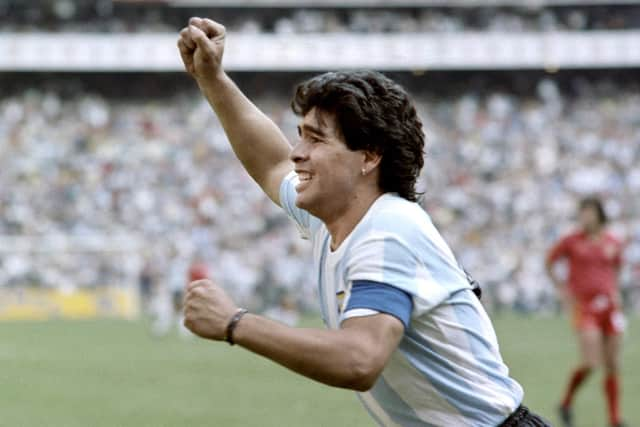

Steve Archibald fared better. In another not completely torturous link with Scotland, the “skinny motor mechanic from Rutherglen” – Archibald’s own words - had the daunting task of replacing Maradona at Barcelona following the unseemly end to the No.10’s career at the Nou Camp, amid kung-fu kicks and a cartoon-style punch-up after a Copa Del Rey final with Athletic Bilbao in 1984, his last game for the club. Maradona’s temper snapped after another 90 minutes of being abused beyond the limits of legality, by Andoni Goikoetxea, the Butcher of Bilboa, the perpetrator of a horror assault on him a year earlier, in particular.
Maradona moved on to Napoli, where his greatest, saddest, chapters unfolded. The locals freebased Maradona, he freebased, well, we know what now, although it’s in Spain where he reportedly first dabbled with cocaine, making it easier for Barcelona to cut their ties with him.
Archibald stepped in and proved sufficiently unfazed to score on his debut against Real Madrid. In 2014, he sought to explain, in a piece in The Scotsman, the emotions involved in being tasked with succeeding Maradona. He disputed ever thinking about it that way, despite the front page of El Mundo Deportivo, on the morning after he signed, declaring: “Este es el hombre” (translation: This is the man).
“I was not coming in to do what Maradona had been doing because obviously Maradona is extremely special,” reflected Archibald, shortly before the 30th anniversary of his signing. “And more special than anyone I have seen, before or since. His ability was sublime.
“I would have to be a lunatic to think that I could come in and do what Maradona had been doing. It never entered my head. That is what I told the press when they asked me: how does it feel to be coming in to replace Maradona? I said I am sorry to disappoint you. I am not here to substitute Maradona. Maradona has gone.”
Advertisement
Hide AdAdvertisement
Hide AdNow he really is gone. Replacing him is not – nor ever will be – up for discussion.